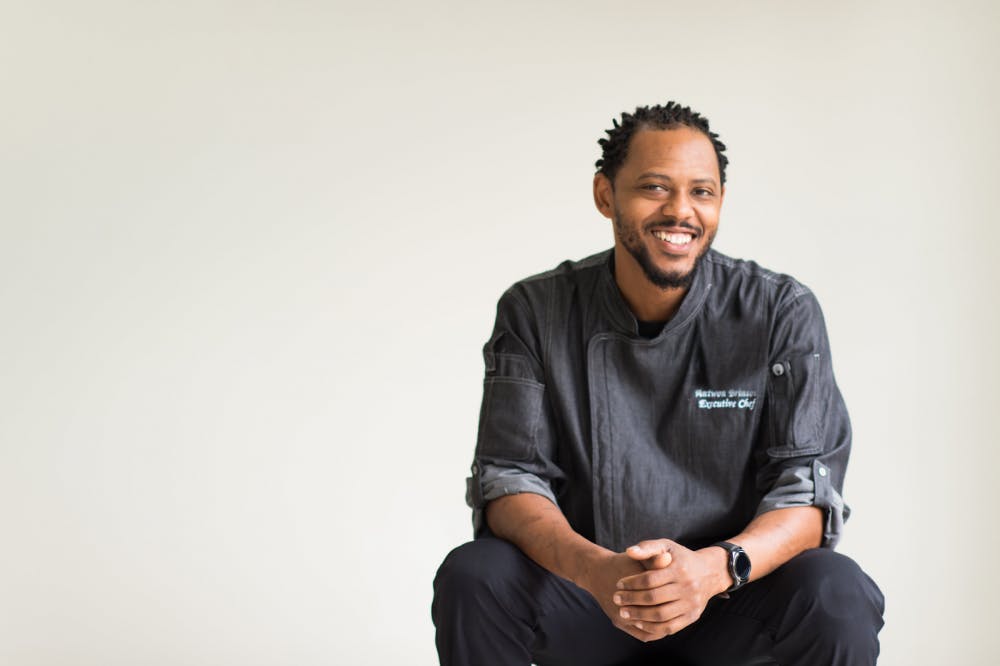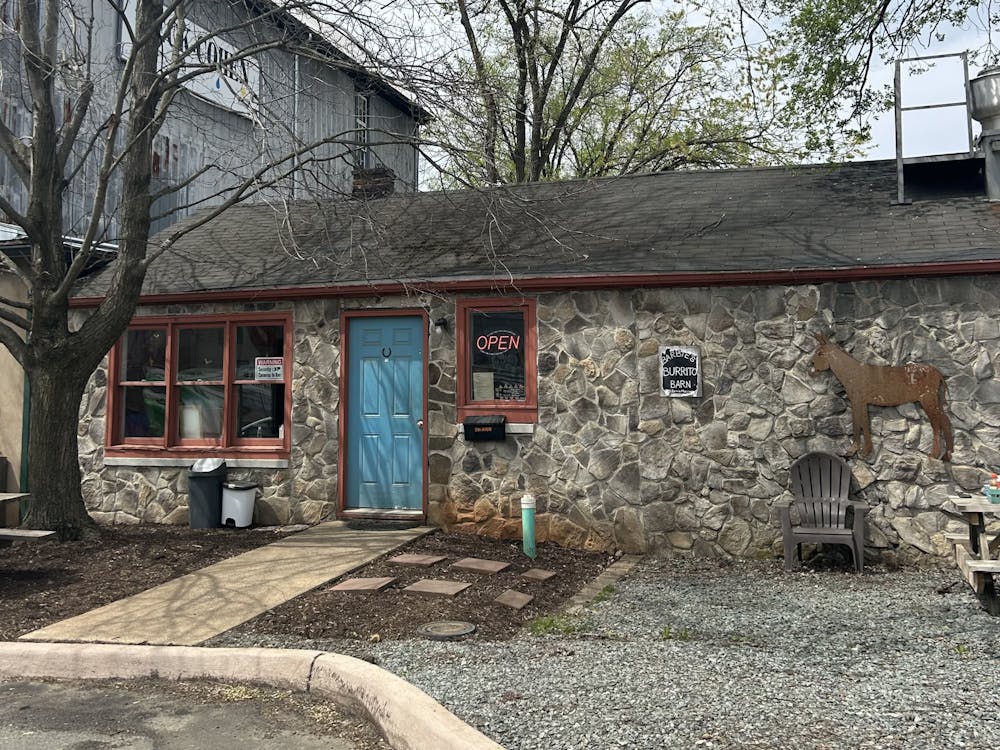Antwon Brinson moved to the City of Charlottesville in hopes of opening a restaurant for a new club downtown. To his dismay, he realized that the culinary workforce in the Charlottesville community was not only minimal but also lacked the qualifications necessary to work at an upscale restaurant.
He quickly detoured his career path by launching Culinary Concepts AB, a training program designed to first help young adults acquire technical skills in culinary arts and then connect them with jobs in the community.
It is often difficult for businesses to find initial success, but Brinson found support from the City’s Minority Business Program.
“This program connects me with resources that allow me to help my students remove barriers, such as transportation and child care,” Brinson said. “Being a small business, I did not have the capital to provide these type of services.”
The City’s Minority Business Program consists of two parts. The first facet is the Office of Economic Development, which is typically the more outward facing office. The OED is what the public sees as it works directly with businesses. It is present at community events and hosts events like the career fairs and business expos.
On the other hand, the Division of Procurement and Risk Management is more internal. Once the OED begins a relationship with an individual, such as a minority business owner, DPRM steps in to work with decentralized buyers to make sure they know the individual’s business exists.
In order for a business to receive these requests for quotes and proposals, it must receive “SWaM” certification from the Virginia Department of Small Business & Supplier Diversity. SWaM — which stands for Small, Women-owned, and Minority-owned Business — will allow businesses to appear on a huge database that buyers, such as government agencies or other large organizations, turn to when submitting requests for quotes and proposals.
There is also a designation within SWaM called SWaM-O, in which the O stands for micro-businesses. This designation is available for businesses that have 25 employees or less. To receive certification, the state must verify that the business is actually micro, small, women- or minority-owned.
The City’s Minority Business Program works hard to certify all businesses that meet at least one of these requirements so that no business in the Charlottesville is missing out on any opportunities. Hollie Lee, the chief of workforce development strategies for the City, spoke of the importance of getting this designation.
“If we’re able to get minority owned businesses SWaM certified, and we get them in the system and registered the way we need them to be, they’re going to have so much more opportunity to increase their revenue,” Lee said. “They’re going to be getting [requests for quotes] from state agencies, from local government agencies and other large organizations that are using the SWaM database.”
Samuel Spillman, a doctor at Balanced Chiropractic and Physical Therapy said his business originally decided to get SWaM certified because they were preparing a bid for services for the City. They did not end up getting the bid and have not seen any uptick in requests for their services since receiving the designation.
“I’d hoped that with the SWaM designation potential patients might be more inclined to choose us as a small local business over national chains or local large businesses that provide similar services, but I'm not sure people consider that in health care as opposed to making a restaurant choice,” Spillman said in an email to The Cavalier Daily. “I think most people are not familiar with the SWaM designation unless they are in city government or perhaps at the University.”
Will Kulick, a general manager of Blue Ridge Graphics, said he was proud his business is SWaM certified and thought the ability of local businesses to positively benefit from each other and from the city was there, even though there were limitations to what the certification actually did for his company.
“The designation has helped us reach new customers across the state, but not as much as we had originally hoped,” Kulick said. “In our experience, most quotes put out to SWaM vendors also allow out-of-state vendors who do not follow the same certification standards and whom we feel often drive down prices in hopes of taking the business out of state.”
Lee said it is critical that businesses that get certified are also entered into eVA — the state procurement system — and register with each locality where they plan to do business.
Even though the program currently has multiple components to help these businesses, Lee conceded that it is not perfect.
“We are working to better the program by creating one robust, minority business program.” Lee said in an email. “This includes combining the efforts of the Office of Economic Development and Division of Procurement and Risk Management. Although we’ve worked closely together in the past, having the two new positions working in tandem will further strengthen this relationship.”
Lee added that additional events and outreach would also be helpful.
“The city gathers local businesses together for networking and information, thereby creating a tighter local economy,” Kulick said. “Jason Ness and Kelly Bassett are doing great thing to grow local businesses’ awareness and we’re very happy to be a part.”
Ness and Bassett work alongside Lee in the Office of Economic Development.
Pearl Island Foods founder Sober Pierre is another example of someone who founded a minority-run business and utilized the City’s Minority Business Program’s resources from start to finish.
“He’s someone who came to me years ago, and he came into my office with this thing called ‘Pikliz,’ which is basically a Haitian sauerkraut, and he had this idea that he wanted to bottle it and sell it,” Lee said.
With help from the City’s program, Pierre has been able to establish his own Caribbean-inspired café and catering business for the city of Charlottesville and the University. He has primarily taken advantage of the program by utilizing the GO HIRE program and through hiring people that have gone through city training.
GO HIRE supports city businesses by subsidizing the wages of new employees being trained. Any new hire is eligible as long he or she is a resident of Charlottesville and is making a self-sufficient salary.
“The GoHire program is great,” Pierre said in an email. “It helped defray the initial expenses of hiring for a position that we weren't sure we could afford but turned out to be pivotal to our growth potential. The value of GoHire is great for small businesses that don't necessarily have the capital to [invest] on risky opportunities that may or may not pan out.”
The City’s Minority Business Program also includes the Downtown Job Center, which offers employment consultations with individuals looking for assistance in the job search and application process. Additionally, the City hosts job fairs and a women and minority business expo which is geared towards business development.
Although these resources are offered to all businesses in Charlottesville, the Office of Economic Development has focused on making sure that small and women- and minority-owned businesses are aware of the programs.





